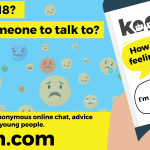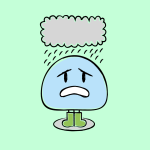On this page we cover:
- How many hours sleep do I need?
- Things that stop you sleeping
- Why is sleep important?
- Tips
- Advice and support
“How many hours of sleep do I need?“
Sleep is important to our health as it helps to re-charge our batteries after a long day or when we are having a stressful time. It also improves our immunity and gives us time to process the day.
Teenagers need around 8-10 hours sleep a night.
Reasons why you may be finding it hard to get to sleep?
- Caffeine – is a stimulant that keeps you awake. Try to avoid things like coffee, tea, cocoa, chocolate, cola and soft drinks 4-6 hours before bed time.
- Nicotine – is a stimulant like caffeine.
- Alcohol – disrupts your sleep cycle.
- Diet – Being hungry or going to bed too full can keep you up.
- Worries – Worries, stress, anxiety and depression often cause sleep problems.
- Light – Natural and artificial light (from your mobile or light bulbs etc) make your body think it is ‘awake time’ and can interfere with the production of ‘melatonin’ (the hormone which makes us feel sleepy).
- Environment – Uncomfortable beds, room temperature too hot or cold, noise distractions.
- Naps during the day – disrupt your sleep routine at night.
Why is sleep so important?
Lack of sleep can lead to:
- Poor concentration
- Irritability
- Poor memory and tiredness
- Bad mood and thinking patterns
- Poor judgement
If you're having trouble sleeping: 1. Use the health app - to create a weekly sleep schedule to alert you when it's bedtime. 2. Create a calming bedtime routine - bath, turn down lights, read a book, etc. 3. Have a tech-free bedtime - no digital screens an hour before bed. 4. Keep a notepad by your bedside - to write down any worries on your mind. 5. Try some pillow mist - Lavender essential oil has a relaxing scent. 6. Be active during the day - exercise increases your sleep drive. 7. Stop forcing yourself to sleep - get up and do something and then try going back to bed. 8. See a GP - if a physical health problem is stopping you from getting a good night's sleep.
We spoke to some young people about what they do to help them get enough sleep, this video below is what young people said:
Do you know? A 30 minute walk, 5 times a week, that raises your heart rate, has the same effect as an antidepressant but with no side effects! Read more about the 'Mind and Movement' connection.
Where can I find more sleep advice?
You might find the following links useful:
- Sleep resources for teens
- Teens & Young People – Teen Sleep Hub
- Teenagers – A good night’s sleep – BBC Bitesize
- Young Minds – What to do if you’re struggling to sleep?
- Every Mind Matters Website
If stress and worries are keeping you awake at night, find someone to talk to, go to…
Page updated on June 6th, 2023 at 12:34pm





